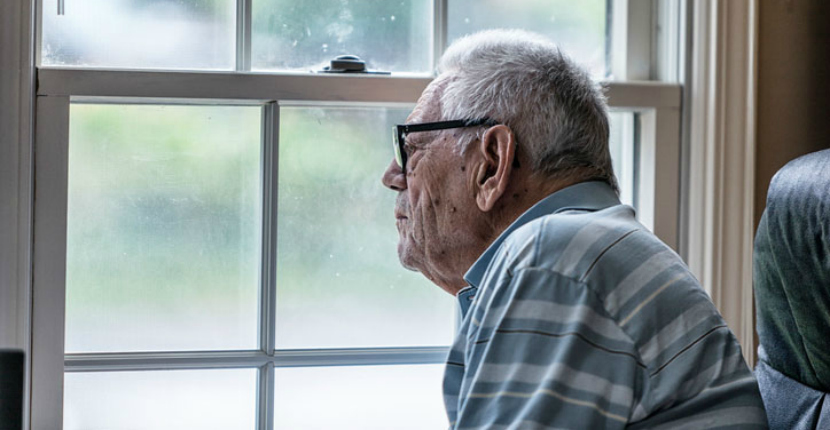Senior isolation is increasingly becoming one of the greatest social challenges faced by older Americans. And in 2014, 34 percent of people (or 11 million) aged 65 and older were living alone, according to the U.S. Census Bureau. That number continues to increase, as more and more Americans reach their golden years. This is also the time that more seniors are coping on their own – and those statistics are rising as a growing number of older adults don’t have children to care for them. Here are a few important facts that Freedom Home Care discovered about senior isolation and
Read More
Could Telemedicine Benefit You or Your Loved One?
Telemedicine is quickly becoming the new wave of the future. And for seniors, it’s providing better access to quality healthcare in a more affordable way. If you’re like those of us here at Freedom Home Care, then you probably agree that the health and well-being of our seniors is one of our greatest priorities. Finding solutions that meet the needs of older loved ones is crucial, especially when we can’t be there to care for them. And telemedicine does just that. What is Telemedicine? It’s the practice of using electronic communications to monitor and improve the health of patients. Through the use
Read More
How A Personal Emergency Response System Can Help Maintain Independence
For older loved ones, finding a balance between achieving the independence they want and the getting assistance they need, is a quandary at best. We worry when parents or grandparents are living so far away on their own. What happens if they fall? If they’re suffering from a serious health condition, how quickly will first responders arrive in the event of an emergency? According to statistics, over 33 percent of accidents and falls involve people 65 years of age and older. While you don’t want to overstep your boundaries, it’s only natural to be concerned about the safety of your loved one. No matter if
Read More
When is it Time for a Caregiver?
“How do I know if my loved one needs a caregiver?” A question many of us ask will ourselves at some point in our lives. It’s an all-too common scenario: “Mom once kept her home tidy and in place, but lately everything seems so scattered and unorganized.” “Dad can’t remember the last place he put his heart medication and seems to have trouble recalling important dates and information.” For seniors one of the most significant things that defines who they are, is their independence. It’s the one thing – besides their love of family and friends – they try to
Read More
How Seniors Utilize Ride Sharing
With a large number of Americans over the age of 65, mobility continues to be a major issue for our growing population of older loved ones. According to statistics, 20 percent of seniors have no way of getting around due to age, lack of vehicle ownership or health. The problem increases as a majority of seniors are homebound, receiving in home services or personalized elder care and for others that live in areas with a lack of access to public transportation. Social isolation challenges the livelihood of the ones we love anytime they are without transportation. And when there are
Read More
Preparing a Loved One with Dementia for Surgery
Life can be difficult for patients who live with dementia. Many times they suffer from conditions such as depression, short attention span, difficulty concentrating and planning and memory loss and confusion. And the possibility of having to undergo surgery, can be a traumatic experience – worsening some of the symptoms your loved one may already be experiencing. It’s normal for families to be apprehensive about the effects of anesthesia on seniors with the disease. They may fear that the drugs administered prior to surgery may cause or exacerbate memory loss and changes in behavior. What’s important to understand is that
Read More
What Seniors Should Know About the Flu
According to Dr. Tom Frieden, director of the U.S. Centers for Disease Control and Prevention (CDC), the flu often doesn’t get taken as seriously as it should. In fact, the number of people between the ages of 50 and 64 and 65 and older who were vaccinated during the 2015-2016 flu season decreased by 3 percent. Seniors, infants and women who are pregnant are at greater risk for developing the virus than other groups. The CDC reports that 71 to 85 percent of seasonal flu-related deaths occur in those 65 and older – that same group also makes up about
Read More
Ways to Show Your Senior Loved One You Care
Looking for ways to spend quality time with your older parent or relative? Or a gesture to show you’re thinking of them when you can’t be around? Here are a few fun and creative ways Freedom Home Care came up with to say “I love you” to that special senior in your life. Give Them A Card Whether it’s handmade or store-bought, a greeting card is a great way to express your sentiments for your loved one. Surprise them by sending it by mail or deliver it in person for an added touch. Send Flowers If your senior loves the
Read More
Could a Stair Lift Help You Stay in Your Home?
When mobility is an issue, something as simple as going up and down the stairs can be a challenge. Certain conditions make it even more difficult to move about your home like arthritis, specific types of muscular diseases and dementia. Mobility can also be affected after having major surgery when in-home care and post-surgery care is needed in order to assist in recovery. Many people have to consider alternative solutions to stairs whenever living in a two-story home prohibits safe movement from one floor to the next – which can be costly for a senior living on a fixed income.
Read More
Consider Meal Delivery to Make Food Prep Easier
Getting around can be difficult for seniors especially when mobility is an issue. And when going from point A to B is a challenge that makes it tough for older loved ones to maintain a healthy diet because they have no way to access they food that they need. Many people are not aware that hunger and under-nutrition are slowly becoming an epidemic in the U.S. It was reported by the National Foundation to End Senior Hunger that in 2014, 15.8 percent of the population or 10.2 million older Americans were threatened by hunger, while And 3.7 million seniors are
Read More




